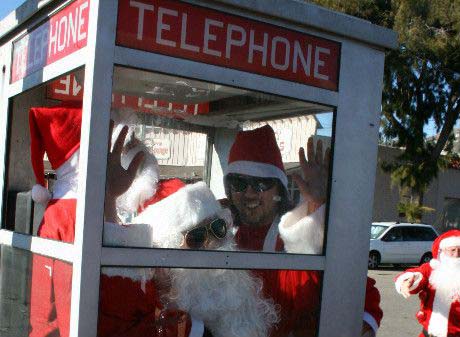4 Empowering Perspectives on Holiday Depression and Stress

Every case studies knows that holiday depression and stress are a prominent feature of the lives of many at this time of year.
Usually that’s seen as something that people just must endure.
But is there a possibility of something that would actually give life in the midst of holiday depression and stress?
Compassion and Insight into Myself at the Holidays
At this time of giving and preoccupation with the wants and needs of others, we all need a very healthy sense of compassion for ourselves. It’s very important to recognize that the holidays can be quite hard on people.
Many have had difficult experiences associated with the holidays. Family conflict, negative experiences with addictions, marital breakup or grief over the loss of a loved one are only a few examples.
If I find myself having negative or dark feelings over the holidays, I need to acknowledge that in a kind way, without feeling pathological or wrong. Therapists also know that the compulsive joyousness of the holidays can feel like salt in the wounds of those who might be hurting.
What if I Quit Resisting My Holiday Depression?
It may be important for many people to acknowledge how difficult the holidays are for them, and just to feel it, rather than fighting it. What would it be like, if, instead of resisting the feelings of depression or overstress, I just acknowledge and accept them, without any sense of self blame or self attack? For some, it might bring a feeling of something like relief or liberation. As Jungian analyst June Singer has it, “case studies can help the person to gain an understanding of the depressive attitude, to work with it, and eventually to transcend it.”
What Do I Need to Release, in my Holiday Stress and Depression?
Depth case studiess are aware that often, at the heart of depression, the client needs to release, or let go. It may be an acknowledgement that something that the individual clings to is lost forever, or an obsolete identity or self understanding. Sometimes, we have to find a way to make peace with the ghosts of the past, and release them.

It’s not by accident that the process of renewal in the life of Dickens’ Ebenezer Scrooge begins with the visit of the Ghost of Christmas Past. Scrooge has to acknowledge painful things in the past that need to be released. And it’s only by that release that the energy or life that has been caught up and frozen in the loss of those precious things is freed to move into a new form, and a new identity.
Example: a woman grieved her childhood experience of Christmas, which was about material excess, emotional emptiness and loneliness. She came to find a joy and vitality in celebrating a Christmas with minimal material trappings, connections with genuinely meaningful people, and non-traditional meals and activities.
Is Something Vital Hidden in my Holiday Stress and Depression?
From a /a-midlife-transition perspective, at the heart of most depression is something that the individual is working on at the unconscious level. The holidays are a time to watch dreams, and look for creative stirrings. Within holiday sorrow may be the stirring of new life that wants to be born.
Depth case studies is concerned with finding the life often locked in the frozen heart of depression.
Brian Collinson, Registered Psychotherapist & Jungian Analyst
[cta]

